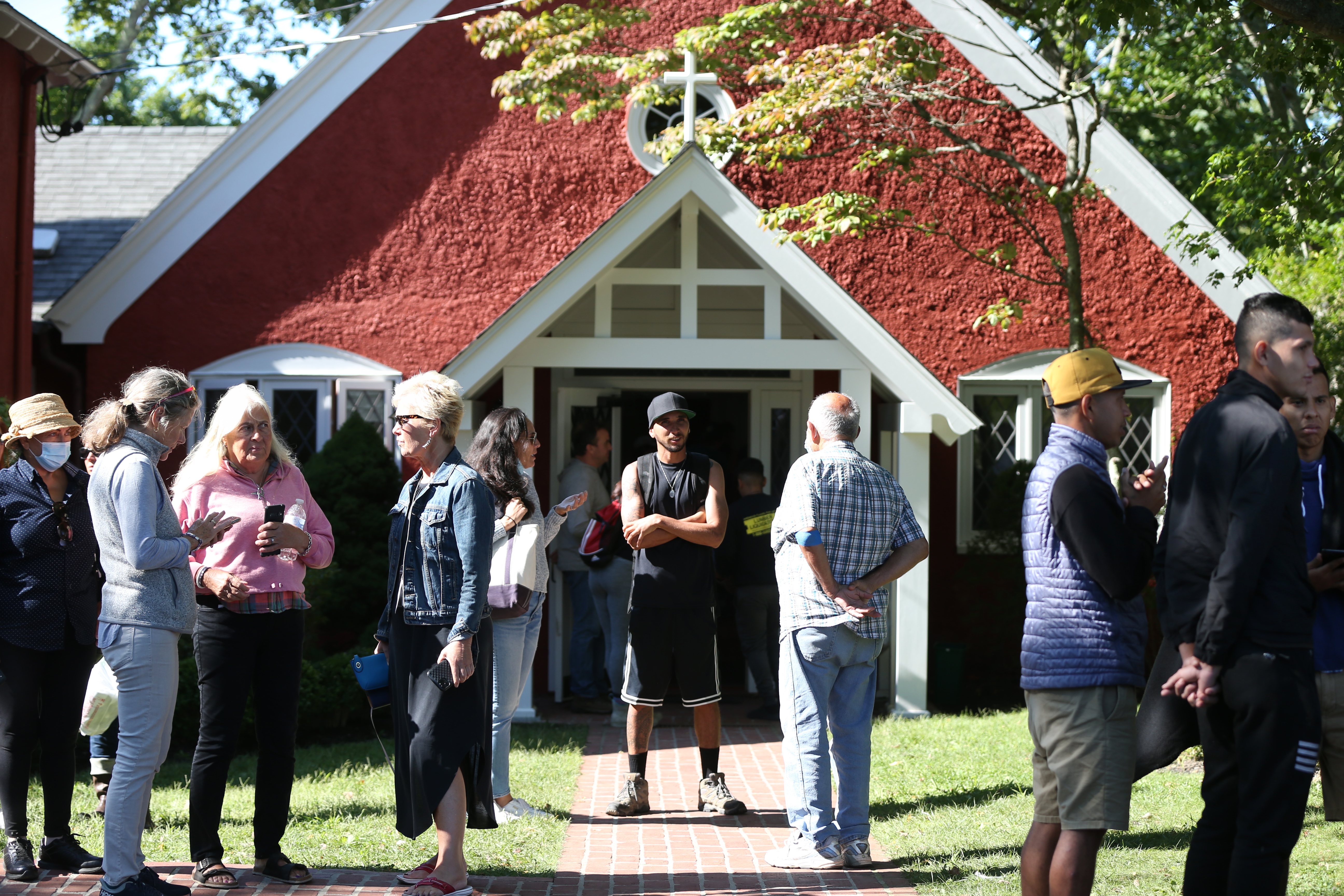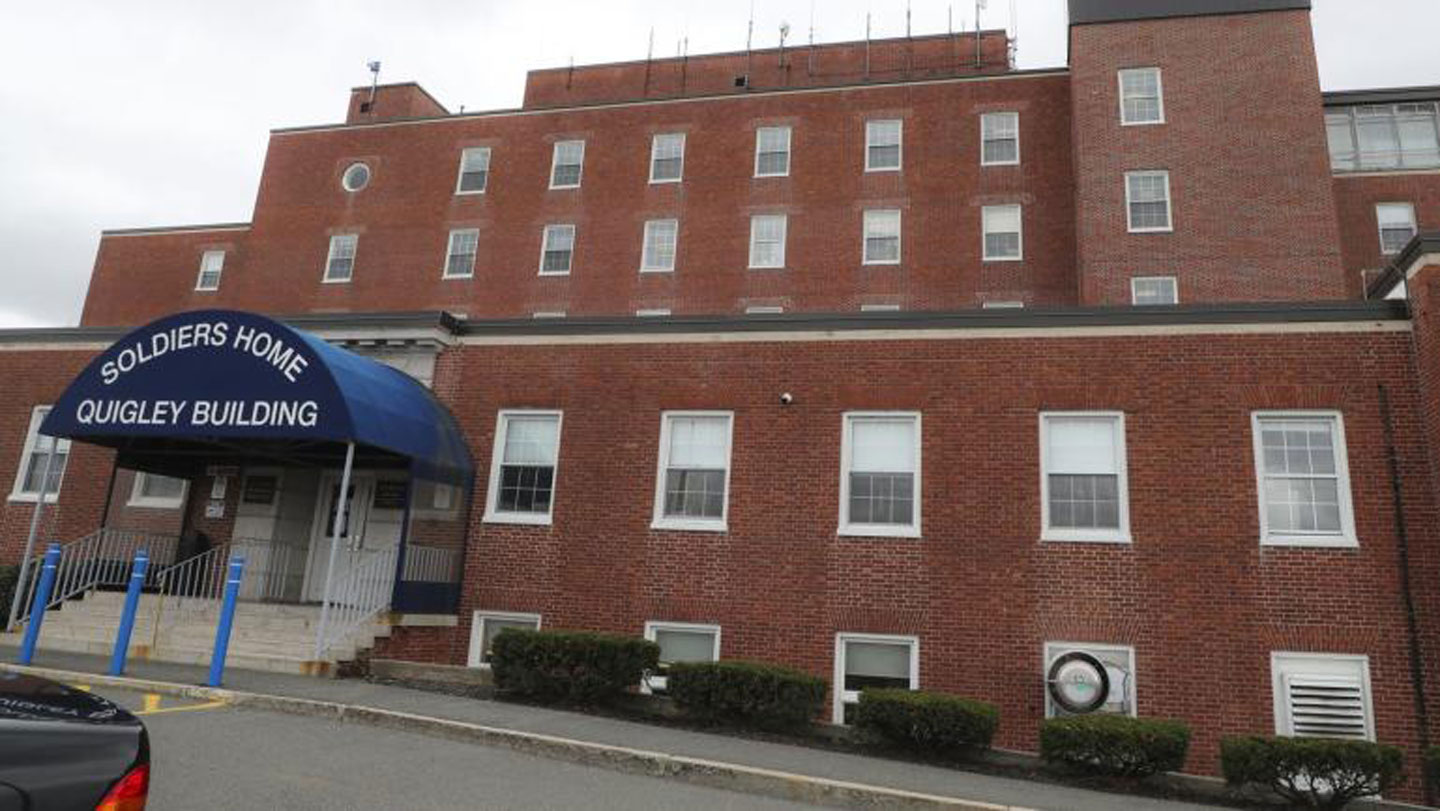Massachusetts House Democrats on Wednesday rolled out a $57.9 billion state budget for fiscal year 2025 that mirrors many of Gov. Maura Healey's ideas for tapping new funding sources while calling for a slightly smaller spending increase.
The proposal set for debate in two weeks would increase spending by about $1.9 billion, or 3.3%, over the annual budget Healey signed into law last summer. It does not call for any major tax hikes or draw from the state's long-term "rainy day" savings account, whose balance could surpass $9 billion by July 2025 under the House's projections.
To balance the growth at a time when the state faces an increasingly strained fiscal landscape, House Democrats moved to make use of about $1.3 billion in new one-time or recurring revenues, including legalization of online Lottery sales and redirection of money that would otherwise automatically be stashed into savings.
House Speaker Ron Mariano -- who along with Senate President Karen Spilka, Healey and former Gov. Charlie Baker oversaw a major increase in state spending in recent years -- said the proposed annual budget balances a demand for "fiscal responsibility" with a need for added investment.
Get Boston local news, weather forecasts, lifestyle and entertainment stories to your inbox. Sign up for NBC Boston’s newsletters.
"We know the good fiscal times don't last forever. The reality is one that we have come to know all too well over the past 10 months," Mariano told reporters. "This March broke a streak of nine months where revenues came in below benchmark, all while the commonwealth's emergency assistance program remains strained with no immediate prospect of support from Congress or anywhere else."
"The result of these issues is simple: this fiscal year is not going to be like the last few," he added.
The House Ways and Means Committee unveiled the budget Wednesday morning, and representatives are set to discuss it in a caucus shortly after noon. Debate is scheduled to begin Wednesday, April 24.
House Democrats embraced many of Healey's ideas for new sources of money to bulk up overall spending in the face of flagging tax collections. Both budgets would greenlight legalization of online Lottery sales, draw from trust funds previously established to cover the costs of K-12 and early education, restructure MassHealth assessments, approve tax modernizations and amnesty, and redirect gaming revenues to help cover state outlays, albeit with some differing amounts and estimates.
The House budget also mirrors the administration's push to make up to $375 million in excess capital gains tax revenue available for spending. Capital gains revenue above a certain threshold gets automatically deposited into savings, and both budgets would limit those transfers, freeing up more money that can be spent directly.
It's not yet clear whether or how much House Democrats moved to trim spending in some areas to support expansions elsewhere.
House Ways and Means Committee Chair Aaron Michlewitz said his chamber's budget proposal calls for half as much money for snow and ice removal as the governor did, and has about $300 million less in unrestricted general government aid compared to Healey's spending plan.
But asked about reductions compared to the fiscal 2024 budget, he did not answer directly.
"I don't want to get into each line item directly, but overall, 3.3% growth -- there's a lot of growth across the board," he said. "Some [areas] have better growth than others."
The upcoming budget cycle reflects the second year in which Beacon Hill is able to fund education and transportation investments using money generated by an income surtax on the state's highest earners, which voters approved in 2022.
Mariano and Michlewitz are targeting a different breakdown in that spending than Healey. Their budget would carve it up into $695 million for education and $605 million for transportation, a bit closer to an even split than Healey's proposed $750 million for education and $550 million for transportation.
Under the House budget, surtax money would go toward investments such as another year of providing free school meals to all students ($190 million), increasing rates for child care providers ($65 million), MBTA capital investments ($75 million) and a new "academy" program to help the T build out its workforce ($40 million).
House Democrats also want to use $37 million in surtax dollars as a supplement to K-12 schools, on top of $6.86 billion in Chapter 70 education funding that more than funds another year of the Student Opportunity Act.
Michlewitz said those investments would push state aid per pupil to $104, which he described as $74 more than the governor's budget and $44 above the traditional level.
The bill would also make permanent the Commonwealth Cares for Children, or C3, grant program, which first launched during the pandemic with federal dollars and has since been continued using state funds.
House Democrats would direct $475 million toward C3 grants, which matches Healey's proposal but draws from a different mix of funding sources.
One source of massive pressure on state budgeting has been the emergency assistance shelter crisis that erupted right around when Healey took office, fueled in part by an increase in newly arriving migrants.
The House budget would make $500 million available to cover shelter costs, $175 million of which would come from a savings account known as the Transitional Escrow Fund.
That total shelter spend is only a bit more than half of what the Healey administration has projected the state will actually spend on the system in fiscal 2025.
"Being an eternal optimist, things could change. Things could change next year," Mariano replied when asked about the gap between state estimates and the House's proposal. "We want to maintain as much control over this process as we can. As we deal with the ebb and flow, we're never quite sure what the numbers are going to be. So to anticipate the end number, I think, is a bit premature."
Michlewitz added that shelter funding is "a fluid discussion."
"You go back nine months ago and it was a different discussion than it is today," he said. "It's hard to say exactly where it's going to be in six to nine months. We think the number we're putting on the table for discussion within the House gets us far enough along that we can see where we are going forward down the road."
Michlewitz and his Ways and Means counterpart, Sen. Michael Rodrigues, continue to negotiate about a fiscal 2024 spending bill that would steer more money toward the shelter system outside the annual budget process and implement some limits on stays.
Asked if House debate on fiscal 2025 shelter spending would delay compromise on the fiscal 2024 shelter bill, Michlewitz said, "I gave up a long time ago on guessing when we're going to come to an exact agreement, what day it's going to be, but we're continually talking with our Senate counterparts right now."




